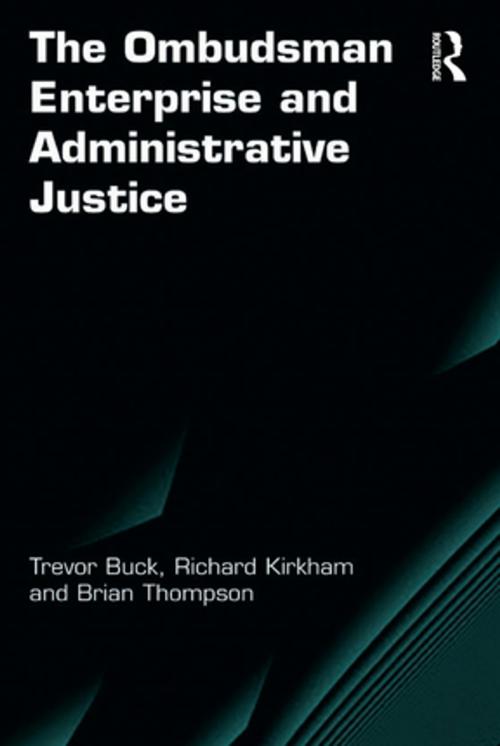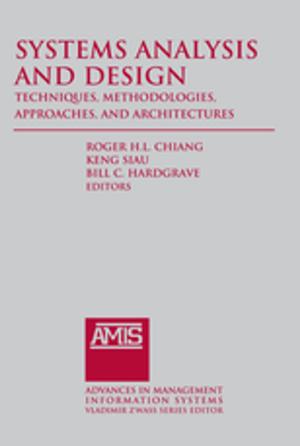The Ombudsman Enterprise and Administrative Justice
Nonfiction, Reference & Language, Law, Jurisprudence| Author: | Trevor Buck, Richard Kirkham, Brian Thompson | ISBN: | 9781317022411 |
| Publisher: | Taylor and Francis | Publication: | February 17, 2016 |
| Imprint: | Routledge | Language: | English |
| Author: | Trevor Buck, Richard Kirkham, Brian Thompson |
| ISBN: | 9781317022411 |
| Publisher: | Taylor and Francis |
| Publication: | February 17, 2016 |
| Imprint: | Routledge |
| Language: | English |
The statutory duty of public service ombudsmen (PSO) is to investigate claims of injustice caused by maladministration in the provision of public services. This book examines the modern role of the ombudsman within the overall emerging system of administrative justice and makes recommendations as to how PSO should optimize their potential within the wider administrative justice context. Recent developments are discussed and long standing questions that have yet to be adequately resolved in the ombudsman community are re-evaluated given broader changes in the administrative justice sector. The work balances theory and empirical research conducted in a number of common law countries. Although there has been much debate within the ombudsman community in recent years aimed at developing and improving the practice of ombudsmanry, this work represents a significant advance on current academic understanding of the discipline.
The statutory duty of public service ombudsmen (PSO) is to investigate claims of injustice caused by maladministration in the provision of public services. This book examines the modern role of the ombudsman within the overall emerging system of administrative justice and makes recommendations as to how PSO should optimize their potential within the wider administrative justice context. Recent developments are discussed and long standing questions that have yet to be adequately resolved in the ombudsman community are re-evaluated given broader changes in the administrative justice sector. The work balances theory and empirical research conducted in a number of common law countries. Although there has been much debate within the ombudsman community in recent years aimed at developing and improving the practice of ombudsmanry, this work represents a significant advance on current academic understanding of the discipline.















